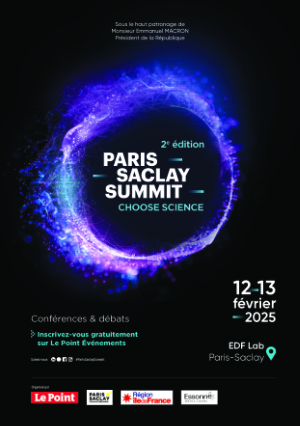5 steps to network efficiently at a conference
Ludovic Fery
Here is a 5 steps guide to improve how you network in such events:
1- 1- Come with one - or a few - small goals
The first main thing is to pick an event that fits you in a professional perspective or, if you’re sent in by your thesis supervisor or principal investigator, at least make it work for you. This can be done by answering simple questions: will I meet key people (orators, scientists, companies sponsoring the event) there? Will I have time to interview speakers or will they flee immediately after their talk? Is there a buffet right after the presentation (refer to suggestion number 4 on this)? Once you’re sure it won’t involve shoe staring or watching the pain dry, don’t go just yet. Take ten minutes to write down one to five small personal goals for this event. It could be asking a direct question to the orator during his or her talk, for instance. If you’re more of an introvert, it could start with some online research to find details on the person you want to meet and invite them in advance for a cup of coffee. Achieving these small goals, however insignificant they may seem to you, will confirm that you didn’t come and leave the place purposeless.
2- 2 - Give up the « wolf pack » behavior
We know: advance in science is all about team work and collaboration, right? But how good does this apply to your career path? A good project is tailored for you so it deserves your interlocutor’s complete attention. If you approach him or her as a group, chances are that the following conversation will be very vague (« amazing, this new LHC signal, isn’t it?») and, as it goes on, less and less person-centered. Well, networking means finding some common ground with the one you’re speaking to, so this will prove difficult with colleagues or friends. If you’re more interested by someone’s history and career than his or hers publications, maybe you should create conditions to meet this person on your own. That will put you out of the comfort zone but in compensation you will be way more available, intellectually-wise.
3- 3- Save your questions for later, except maybe one
This one is especially for the curious like me! You know this moment in a conference, when you tap your feet on the ground or stir in your chair because you have a burning question? Well, don’t ask it straight! Do you reckon the answer will help somehow on your career path, for instance by identifying new key people to meet? If the answer is yes, save this question for the one-to-one conversation right after the presentation or talk. Of course, if you know that you won’t come across the speaker anytime soon (« Howdy, Brian Cox!»), do take the risk. For a conference with a moderately large audience – which is usually true for most science meetings - a good compromise is to ask a pretext question, but still a pertinent one, only to get noticed before you introduce yourself to the speaker.
4- 4- Use the buffet wisely
A buffet is the perfect ally to a good networking event. Whether it’s a lunch buffet or an evening cocktail, this invigorating interlude gives you the opportunity not only to push things forward with your main target but meet other relevant persons as well. If they attend the same event as you, they have to share at least some interests and/or expectations with you. What’s more, once satiated, people tend to be more open-minded and very useful information can move along. The only thing you have to do for this to happen it to show a minimum of « savoir-vivre»: for instance, by handing this plate of petits fours to your neighbor, or recommending out loud that bottle of wine the waiter just opened. On the contrary, don’t show yourself too greedy at the buffet or splutter all around. Experience has proven it doesn’t create connexions at all.
5- 5- The one-week later reminder
Taking care of your network is a continuous process. Once you have met your key interlocutor, there is always a following action, whether it’s getting in touch with contacts he or she gave you, asking him or her on LinkedIn, or simply reminding your encounter some time after the event. There’s no one-rule-fits-all for this kind of reminder but, usually, an email sent one week later is a good timing: not too far away from the encounter « in real life », nor too close. Also, remind that you have to keep this key person in the loop of whatever your next move is, and on any updates on your situation (informal interview, job interview, new job…) that derives from it.
Happy networking!
Get ABG’s monthly newsletters including news, job offers, grants & fellowships and a selection of relevant events…
Discover our members
 Institut de Radioprotection et de Sureté Nucléaire - IRSN - Siège
Institut de Radioprotection et de Sureté Nucléaire - IRSN - Siège  TotalEnergies
TotalEnergies  SUEZ
SUEZ  Ifremer
Ifremer  CASDEN
CASDEN  Nokia Bell Labs France
Nokia Bell Labs France  Groupe AFNOR - Association française de normalisation
Groupe AFNOR - Association française de normalisation  MabDesign
MabDesign  ADEME
ADEME  Institut Sup'biotech de Paris
Institut Sup'biotech de Paris  MabDesign
MabDesign  Tecknowmetrix
Tecknowmetrix  PhDOOC
PhDOOC  CESI
CESI  Aérocentre, Pôle d'excellence régional
Aérocentre, Pôle d'excellence régional  ONERA - The French Aerospace Lab
ONERA - The French Aerospace Lab  Généthon
Généthon  ANRT
ANRT  Laboratoire National de Métrologie et d'Essais - LNE
Laboratoire National de Métrologie et d'Essais - LNE




